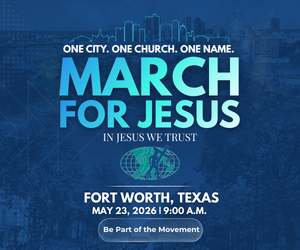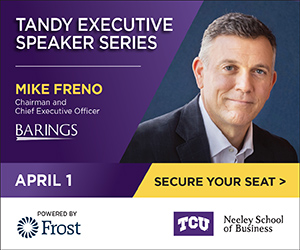NASHUA, N.H. — At the moment Chris Christie learned he had been bumped off the main national debate stage, he was clocking his 44th day on the campaign trail here in New Hampshire. Another enthusiastic crowd, another commanding, grind-it-out town hall performance. Sooner or later, the New Jersey governor told reporters, “it starts to pay off.”
Halfway across the country in Iowa, Bobby Jindal was setting off for two more days on his wearying journey to visit all 99 counties. Another 6 a.m. workout at a Hilton Garden Inn, another huddle with pastors, another county Republican Party dinner and college football tailgate. The Louisiana governor barely qualified for Tuesday’s undercard debate, but in Iowa, he, too, feels a payoff coming.
“A lot of the candidates haven’t invested here like we have: farms, churches, factories, people’s homes, house parties,” Jindal said in an interview. “You name it, we’re there.”
The 2016 Republican presidential contest is nationalized in so many ways, from the series of must-see-TV debates — which are built around national polls — to coast-to-coast chatter on social media and around dining tables about the insurgent front-runners, Donald Trump and Ben Carson.
But on the ground in Iowa and New Hampshire, where the first caucuses and primary will be held in early February, a different and more traditional dynamic is taking shape. This is where candidates such as Christie and Jindal, who have become mere afterthoughts in national discussion of the GOP nomination, are ubiquitous and getting traction.
Unlike in the Democratic contest, where Hillary Rodham Clinton and Bernie Sanders are campaigning aggressively in both Iowa and New Hampshire, a number of the 14 GOP candidates have by now decided to focus most of their time and resources on just one of the two earliest states. Each state has a distinct electorate and historically has given rise to different types of candidates.
New Hampshire Republicans tend to prioritize fiscal concerns over social issues and have been drawn to more-mainstream candidates, such as Mitt Romney in 2012 or John McCain in 2000 and 2008. Christie and Ohio Gov. John Kasich are staking their hopes here, while former Florida governor Jeb Bush increasingly sees the state as the most fertile ground on which to wage a comeback.
By contrast, the Iowa Republican caucuses are heavily influenced by Christian conservatives. The past two winners rose on the religious right: former Pennsylvania senator Rick Santorum and former Arkansas governor Mike Huckabee. Both men are running again and, like Jindal, focusing chiefly on Iowa.
“We expect to do well in Iowa following the same playbook we had before: Meet people not once, but twice, and keep coming back,” Huckabee spokeswoman Alice Stewart said.
Trump and Carson, as well as a pair of freshman senators, Ted Cruz of Texas and Marco Rubio of Florida, are trying to generate national momentum for their candidacies that could propel them through both states. So far, none of the four has publicly prioritized one state over the other, though Iowa looms larger for Carson and Cruz because of their coalitions’ reliance on evangelical voters.
Other candidates, such as Sen. Rand Paul (Kentucky) and former businesswoman Carly Fiorina, are toiling in both states but are not considered top-tier contenders in either.
By going all-in on Iowa or New Hampshire, candidates are employing old-fashioned strategies of intense retail politicking as they try to catapult into the primaries and caucuses that follow on the nominating calendar. It remains unclear whether the romantic notion of attempting to meet thousands of voters in one state may give way this cycle to the national dialogue steered by televised debates and poll-driven media coverage.
Some veteran strategists think it will not.
“It’s all about who is going to win these states. That’s how we have our crazy system set up. We don’t have a national primary,” said Stuart Stevens, who was Mitt Romney’s top adviser in 2012.
Evaluating the candidates on the basis of who is up and down in national polls, Stevens said, “is like looking at someone’s bowling average to determine if they can play tennis. It’s completely irrelevant. At the end of the day, all that matters are these [early] states, where you run for president like you’re running for governor.”
That is how Jindal is campaigning in Iowa. He is but a blip in national polls, but in Iowa, a CNN-ORC survey released Friday had him at 4 percent in the sprawling field. He is attracting particular attention from social conservatives – including those backing other candidates.
Michael Demastus, pastor of the Fort Des Moines Church of Christ and a Cruz supporter, said: “I’ve heard a lot of candidates pray, but I’ve never heard anyone pray like Bobby Jindal. He’s clearly got a deep and personal relationship with Jesus Christ. It’s not a rote, ritual kind of prayer, and people have responded to the way he prays.”
Inside many Iowa churches, Carson enjoys exalted status. Congregants pass around copies of his memoir, “Gifted Hands,” and watch the biopic starring Cuba Gooding Jr.
“It’s Cuba’s best role and just tells you everything about why Dr. Carson is special,” said conservative activist Bob Klaus, who is not affiliated with a candidate. “It’s a hot item among conservatives – it really is.”
Cruz is making a similar impression in Iowa, thanks in part to his father, Rafael, a Cuban-born Christian minister who has become a minor sensation among religious leaders through prayer sessions and private meetings.
The race on the right is unusually chaotic in Iowa, in part because of the absence of the Iowa straw poll, a summer event that previously helped winnow the field.
“You’ve seen some people who usually would be knocked out by now surviving. If Jindal had been seventh or eighth, you might have written his obituary,” said Eric Woolson, who worked for Wisconsin Gov. Scott Walker before he dropped out, and guided Huckabee to victory in 2008.
In New Hampshire, a different group of candidates is vying to channel the desires of the state’s electorate. For months now, Christie has turned in consistently strong, upbeat performances at lively town hall meetings — some of them inside taverns and diners —which have drawn concern from rival campaigns. His strategy is reminiscent of McCain’s in 2000, when he upset George W. Bush to win the primary.
A video of Christie talking candidly at a town hall about drug addiction went viral online last week. And his popularity in the state has improved; for much of the year, more voters had an unfavorable opinion of him than had a favorable one, but recent polls show that has reversed.
Christie told reporters in Nashua last week, “I’ve said to you all along that I could feel things happening here on the ground and that as people start to make up their mind in New Hampshire that we’ll start to do better, and I think they’re just starting to make up their minds now.”
Polls in New Hampshire show the top two candidates are the same as in Iowa and nationally: Trump and Carson. But beneath them, Kasich, Christie and Bush register more strength in New Hampshire. For instance, a WBUR poll last week showed Rubio in third at 11 percent, followed closely by Kasich at 10 percent, Christie at 8 percent and Bush at 7 percent.
Inspired by McCain’s late-2007 turnaround, Bush crisscrossed New Hampshire last week on a three-day “Jeb Can Fix It” bus tour, with plans to return regularly. His campaign and allied super PAC already have a sweeping television advertising presence in the state.
Similarly, Kasich is banking on New Hampshire for a surge. His frequent visits and summer ads from his allied super PAC helped lift him into contention here despite his lower-tier status nationally.
Following an animated town hall meeting in Londonderry last week, Kasich boasted to reporters of his organization — “the best in the state” — and stressed the state’s importance to his prospects.
“We’re like the little engine that can,” Kasich said. “All of my lifetime, people have always discounted what my teams of people can do. Do it at your own peril.”
Also zeroing in on New Hampshire are two longer-shot candidates, Sen. Lindsey O. Graham (South Carolina) and former New York governor George Pataki. Neither will appear in either debate Tuesday because they registered below 1 percent in recent national polls, but both have been working the state exhaustively.
“It’s vastly different on the ground here than these nationalized campaigns,” said Steve Duprey, a Republican National Committee member from New Hampshire. “It’s door-to-door, hand-to-hand election combat. . . . If you’re walking down the street, you’ll have a candidate come up to you and offer to carry your groceries.”
Costa reported from Washington.







